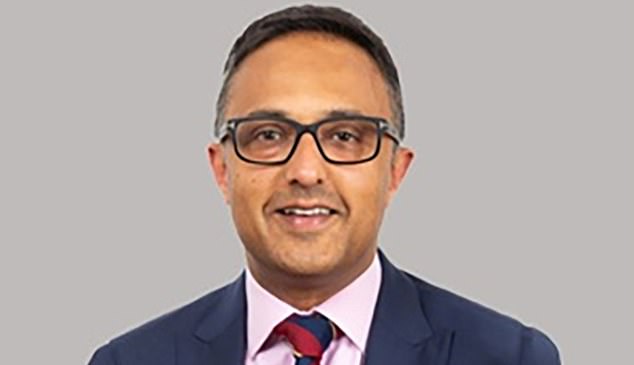Table of Contents
Heart disease kills twice as many women as breast cancer each year in the UK, causing more than 173,000 deaths – almost the equivalent of the entire population of Oxford.
So what are YOU doing to protect yourself?
The answer is probably “not much,” since dementia or cancer typically top surveys of diseases people most fear and actively try to avoid.
However, heart and circulatory diseases affect more people than cancer and dementia combined – around 2.3 million people in the UK have coronary heart disease, the most common form. This is a blockage of the arteries with a build-up of fatty deposits, or plaque. This plaque can break off and block blood flow to the heart, leading to a heart attack.
Heart disease can be a problem for people of all ages – any amount of plaque poses a risk. It’s not just older patients who can suffer potentially fatal heart attacks – around 26,000 people under the age of 75 die as a result of heart attacks each year.
I am now 55 and want to make the most of my time with my family, writes DR. SUNDIP PATEL
It was watching my cardiologist uncle rush to help a man in his 50s who had suffered a sudden heart attack that inspired me to specialize in cardiology.
But I also have a personal interest, as I have a strong family history of heart disease and my father, a retired GP, has narrow arteries.
I am now 55 and want to make the most of my time with my family – I am a father of four and my wife, Sue-Anne, is a cardiac nurse, so with her support I do all I can to keep my heart in good shape.
This is how I do it.
Out of breath and sweaty
I work long hours (three days a week I work 12 or 13 hours a day), but even if that means setting my alarm earlier than usual and getting up at 5 a.m., I make time to exercise.
It helps improve the condition of the heart so that it pumps more efficiently and that means it exerts less force on the walls of blood pressure and relaxes or softens the walls of the blood vessels.
It also helps me feel less stressed, which is also good for the heart as it reduces levels of hormones like cortisol and adrenaline, which can contribute to high blood pressure.
So I try to get at least 30 minutes of breathless, sweaty exercise five days a week – that’s the key: breathless, sweaty exercise.
I take a brisk walk daily with my two chow chows (Luna and Lolly) and two or three times a week I do about 20 minutes on a stationary rowing machine at the gym.
Skipping breakfast
I strongly believe in the benefits of intermittent fasting, where you only eat within a set time frame.
Helps control appetite and blood sugar (eating throughout the day causes repeated spikes in blood sugar, and if the level rises too much, it can damage blood vessels).
I learned about it through Dr. Michael Mosley’s work and my wife encouraged me to give it a try.
Since I started incorporating it into my life about 12 years ago, I have felt more refreshed during the day: when I had a full meal at lunchtime (I now only eat fruit), I often felt sleepy in the afternoon.
Currently, my usual daily intake consists of a cup of coffee before I work out and maybe a glass of milk mid-morning, but otherwise I don’t eat anything until 2pm when I have fruit and berries. Then I eat something in the evening (like chicken or fish and vegetables). I try to do it before 8:30 or 9pm, but it depends on the job.
In addition to fruits and vegetables at every meal, we consume oily fish at least once, if not twice, a week, specifically because the omega 3 fats it contains have been found to benefit heart health, for example, by slowing the build-up of plaque and generally keeping blood vessel walls in better shape.
Adopting this way of eating has helped me lose weight. I started gaining weight with the birth of each of our children (the eldest is now 21) and this gain peaked 16 years ago when my youngest daughter was born. At the time I weighed 90kg (I’m 1.78m tall), giving me a BMI of almost 29, which borders on the “obese” range. Doing a morning fast helped me lose that weight: I now weigh 78kg (12st 2lb).
Take these supplements daily
Personally, I take a multivitamin every day, but that’s mainly to keep my immunity in good shape so I don’t catch colds and such, rather than for my heart.
For patients taking statins to lower their cholesterol levels (I don’t, but I would if my doctor recommended it) and who have problems with side effects such as muscle aches, I suggest trying coenzyme Q10 supplements.
Coenzyme Q10 is an antioxidant that is produced naturally in the body, but levels of it can be reduced by statins. Studies suggest that taking a supplement may help reduce the likelihood of side effects.
Go to bed before you get tired
I make a conscious effort to stop what I’m doing and go to bed before I reach the point where I feel exhausted (usually around 10pm).
There are days when I go to bed so tired that I fall asleep immediately, but I find that by doing so I get poorer quality sleep (so I don’t wake up feeling refreshed), and good quality sleep can have a beneficial impact on things like heart rate and blood pressure.
This is because sleep recharges and refreshes the brain, which controls heart rate and rhythm and, to some extent, blood pressure. If you don’t get enough sleep, it’s like having your computer on all night: it’s prone to crashes. The theory is that an overly tired brain will send the wrong signals to the heart.
So set a bedtime that works for you (ideally before you’re completely exhausted) and make sure you’re getting at least seven hours of sleep a night. Then, stick to it. You can even set an alarm on your phone to tell you it’s time to go to sleep.
Say yes to pizza (once in a while)

Dr. Patel’s view is that if you say, “Okay, one or two days a week I don’t need to be so rigid about things,” it’s a lot easier to maintain a healthy lifestyle.
I’m a big advocate of living a healthy lifestyle, but I also believe that we shouldn’t live life like a monk.
The benefits of relaxation are many, especially for the heart, so there needs to be a balance. My opinion is that if you say, “OK, one or two days a week I don’t need to be so strict about things,” it becomes much easier to maintain a healthy lifestyle.
So at weekends I relax my routine: I don’t fast as rigidly; I might have a poached egg on toast for breakfast and enjoy a beer and some crisps while watching sport in the afternoon, or maybe have a glass or two of wine with my meal (I don’t drink during the week).
There is some evidence that moderate amounts of alcohol, such as red wine, are not harmful to the heart, but excessive amounts can raise blood pressure and blood sugar and cause weight gain.
Also, about once a month as a family we get to order pizza to go.
The exception to this more relaxed approach is tobacco. Unlike alcohol, there is no safe limit to respect and it can only do you harm. I have never smoked and the first thing I ask my patients to do if they are smokers is to stop.
And last but not least, do these two key health checks that you can do yourself regularly.
One thing I do religiously and implore all my patients to do is monitor their blood pressure and cholesterol levels.
I have a blood pressure monitor at home (look for one that is approved by the British Hypertension Society), which I use once a month, and I go to the GP twice a year to have this and my cholesterol checked.
These numbers are like little snapshots of what’s going on inside your body and keeping these levels within healthy limits is absolutely vital for good heart health.
High blood pressure can exert such force on blood vessel walls that it damages them, which can lead to the progression of heart disease.
Meanwhile, cholesterol can directly lead to atherosclerosis, the narrowing of blood vessel walls.
There are simple measures that can help control both numbers, so I keep an eye on them.
A few years ago my blood pressure, 142/98 (it’s considered high if it’s 135/85 or higher), was higher than it should be, so I made lifestyle changes, like starting to exercise regularly (30 minutes a day) and within three months it was back into the normal range.
I also avoid adding salt to my meals and never add it when cooking (it causes fluid retention and increases blood pressure).
I also don’t drink more than three small cups of coffee a day, as too much caffeine can also increase blood pressure, because it increases heart rate.
Now my blood pressure is around 126/84 and my cholesterol is also within healthy limits.
I also regularly check my pulse, using my fingers and a watch, and count how many beats there are in 60 seconds. People with a heart rate above 75 beats per minute may be at risk of heart problems. If your heart rate is regularly above 75 and you have high blood pressure, it is worth speaking to your GP.
- Dr Sundip Patel is a consultant cardiologist at Lewisham and Greenwich NHS Trust and Guys and St Thomas NHS Foundation Trust and the private London Bridge Hospital.

